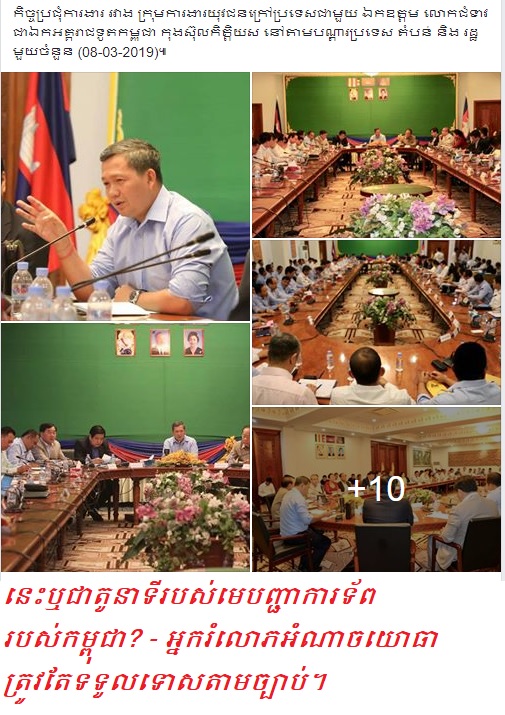Op-Ed: U.S. Department of State

រដ្ឋមន្រ្តីការបរទេសអាមេរិកលោក ម៉ៃឃ៍ ប៉ុមប៉េអូ (Mike Pompeo) ថ្លែងទៅអ្នកសារព័ត៌មាន ប្រកាសរបាយការណ៍សិទ្ធិមនុស្សលើកទី ៤៣ នៃប្រទេសជិត ២០០ នៅក្រសួងការបរទេស នៅថ្ងៃទី ១៣ ខែ មីនា ឆ្នាំ ២០១៩ (RFA khmer)
EXECUTIVE SUMMARY
Cambodia is a constitutional monarchy with an elected parliamentary government. The ruling Cambodian People’s Party (CPP) won all 125 National Assembly seats in the July 29 national election, having banned the chief opposition party in November 2017. Prior to the victory, Prime Minister Hun Sen had already served for 33 years. International observers, including foreign governments and international nongovernmental organizations (NGOs), and domestic NGOs criticized the election as neither free nor fair and not representative of the will of the Cambodian people.
Civilian authorities maintained effective control over the security forces, which often threatened force against those who opposed Prime Minister Hun Sen and were generally perceived as an armed wing of the ruling CPP.
Human rights issues included unlawful or arbitrary killings carried out by the government or on its behalf; forced disappearance carried out by the government; torture by the government; arbitrary arrests by the government; political prisoners; arbitrary interference in the private lives of citizens, including pervasive electronic media surveillance; censorship and selectively enforced criminal libel laws; interference with the rights to peaceful assembly and freedom of association; restrictions on political participation; pervasive corruption, including in the judiciary; and use of forced or compulsory child labor.
